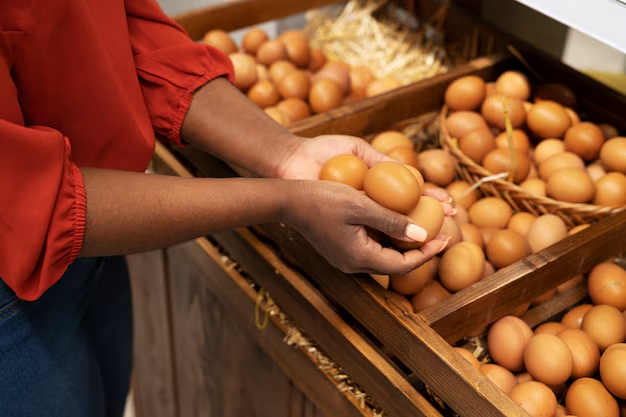Freshness First: How Long Can Eggs Really Last in the Refrigerator?
Eggs are a staple in many kitchens around the world, celebrated for their versatility, nutritional value, and affordability. Whether you prefer them scrambled, poached, or baked into a cake, eggs are indispensable. But a question that often puzzles many is: How long can eggs actually be kept in the refrigerator? This guide takes a deep dive into the storage life of eggs, offering insights and practical tips on how to keep them fresh and safe for consumption.
Understanding Egg Freshness
Before delving into storage specifics, it's crucial to understand what affects egg freshness. Eggs, like any natural product, begin to degrade as soon as they are laid. Factors influencing this process include:
- Age: The date the egg was laid.
- Storage conditions: Temperature and environment play significant roles.
- Shell integrity: Cracked shells can allow bacteria to penetrate, speeding up spoilage.
How Long Do Eggs Really Last?
In general, eggs can remain fresh for about 3 to 5 weeks from the purchase date if kept in the refrigerator. This estimate presumes that eggs are stored correctly, with proper handling to maintain their quality. The use-by or sell-by dates on cartons can serve as a guideline, but they are not definitive indicators of freshness.
Tips for Proper Egg Storage
To maximize the lifespan of your eggs, consider the following storage strategies:
1. Store Eggs in Their Original Carton
- Protection: The carton helps shield eggs from absorbing strong odors and flavors from other foods.
- Moisture and carbon dioxide retention: These are crucial for maintaining egg freshness.
- Tracking freshness dates: Keeping them in the carton makes it easier to identify use-by dates.
2. Refrigeration Placement Matters
- Avoid door storage: Temperatures fluctuate frequently in the door. This variance can reduce freshness.
- Middle shelf placement: This area tends to have the most consistent, cool temperature.
3. Optimal Temperature and Conditions
- Keep under 45°F (approximately 7°C): This significantly slows down the loss of quality and the growth of bacteria.
- Regular cleaning: Regularly clean the fridge to prevent contamination from other foods.
Indicators of Egg Freshness
Knowing how to assess an egg’s freshness can prevent food waste and ensure safety. Here are a few simple tests:
1. The Water Test
- Immersion: Place the egg in a bowl of water. Fresh eggs sink and lay flat on the bottom. Older eggs will stand upright or float.
2. Visual Inspection
- Shell Checks: Look for cracks or sliminess, both indicators of contamination.
- Yolk and White: When cracked, the yolk should sit high, and the white should be thick and not spread out too far.
3. Odor
- Sulfuric Smell: A potent, unpleasant smell upon cracking is a sure sign of spoilage.
Health Considerations
Consuming spoiled eggs can lead to foodborne illnesses, such as salmonella. It's important to:
- Practice good hygiene: Wash hands and surfaces after handling raw eggs.
- Cook thoroughly: Ensure both whites and yolks are firm; this greatly reduces any bacterial risks.
Extending Egg Shelf Life
For those who may not consume eggs quickly, consider these alternatives to prolong their usability:
1. Freezing Eggs
2. Pickling and Preserving
- Pickling: Make eggs last longer with a vinegar-based preservation method.
- Salt curing: Preserves yolks for gourmet preparation.
A Few Handy Egg Tips
Incorporating these insights into your kitchen routine can further enhance egg management:
📝 Quick Tips:
- Label cartons: Note the purchase date directly on the box for easy tracking.
- Rotate stock: Always use older eggs first to avoid spoilage.
- Hard-boiled tips: Use older eggs for hard boiling as they peel more easily.
Visual Summary: Maximizing Egg Longevity
Here’s a handy guide to everything covered, ensuring your eggs stay fresh and safe:
| Strategy | Description/Tip |
|---|---|
| Use the original carton | Protects from odor absorption and moisture loss 🥚 |
| Middle shelf storage | Maintain even, cool temperatures for longevity 📦 |
| Conduct a water test | Determines freshness by buoyancy 🌊 |
| Avoid fridge door storage | Reduces exposure to temperature fluctuations 🚪 |
| Freeze if not consumed soon | Store beaten eggs labeled and dated for up to a year ❄️ |
Conclusion: Enjoy Fresh Eggs Always
Understanding the lifespan of eggs and taking the time to store them properly can lead to less waste and more delightful meals. Eggs are as nutritious as they are versatile, and with these tips, you'll always enjoy them at their freshest. Embrace quality storage habits today and ensure that your eggs reach their fullest potential on your plate.

